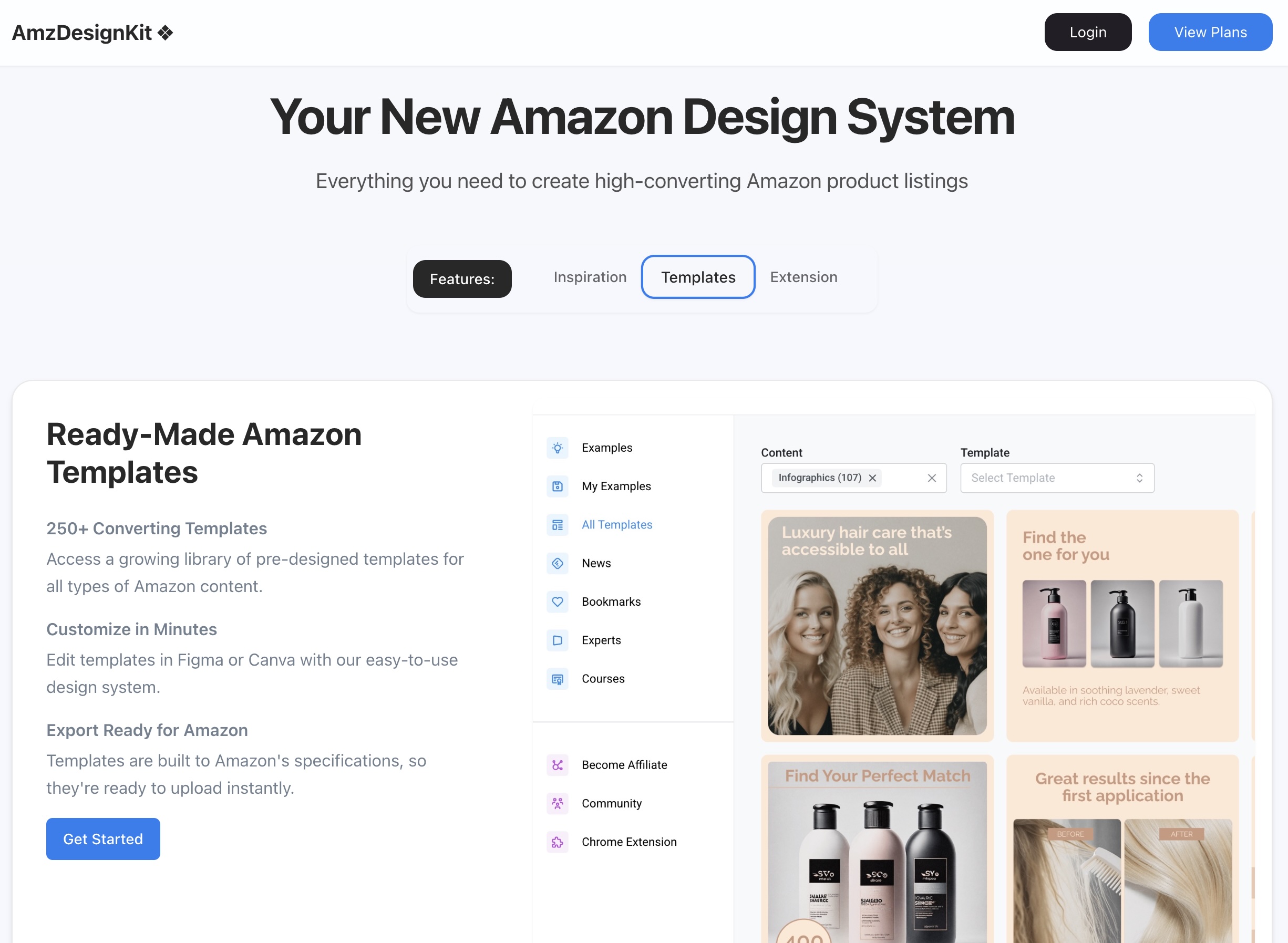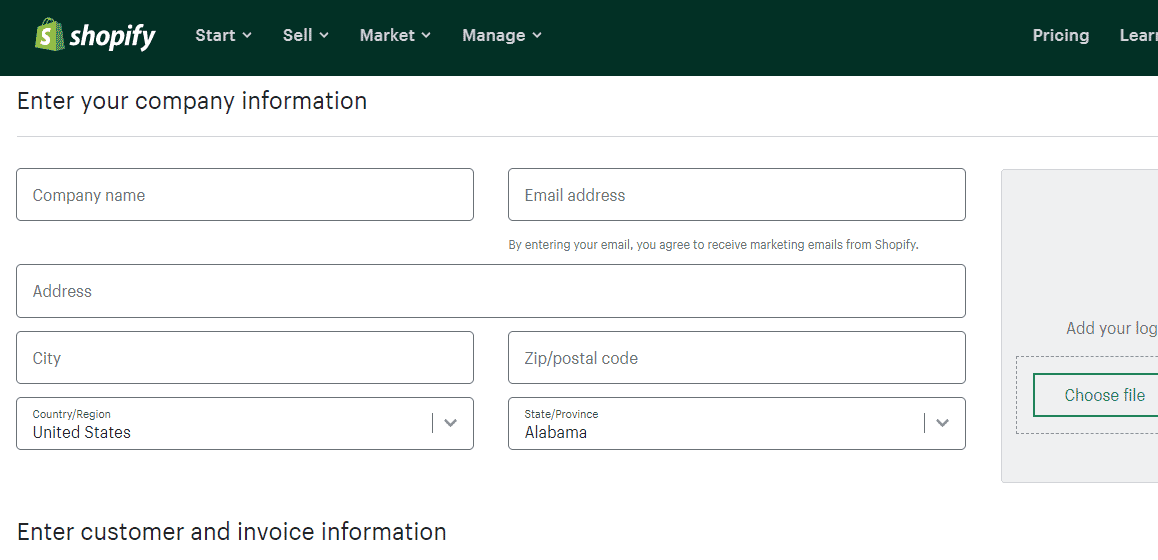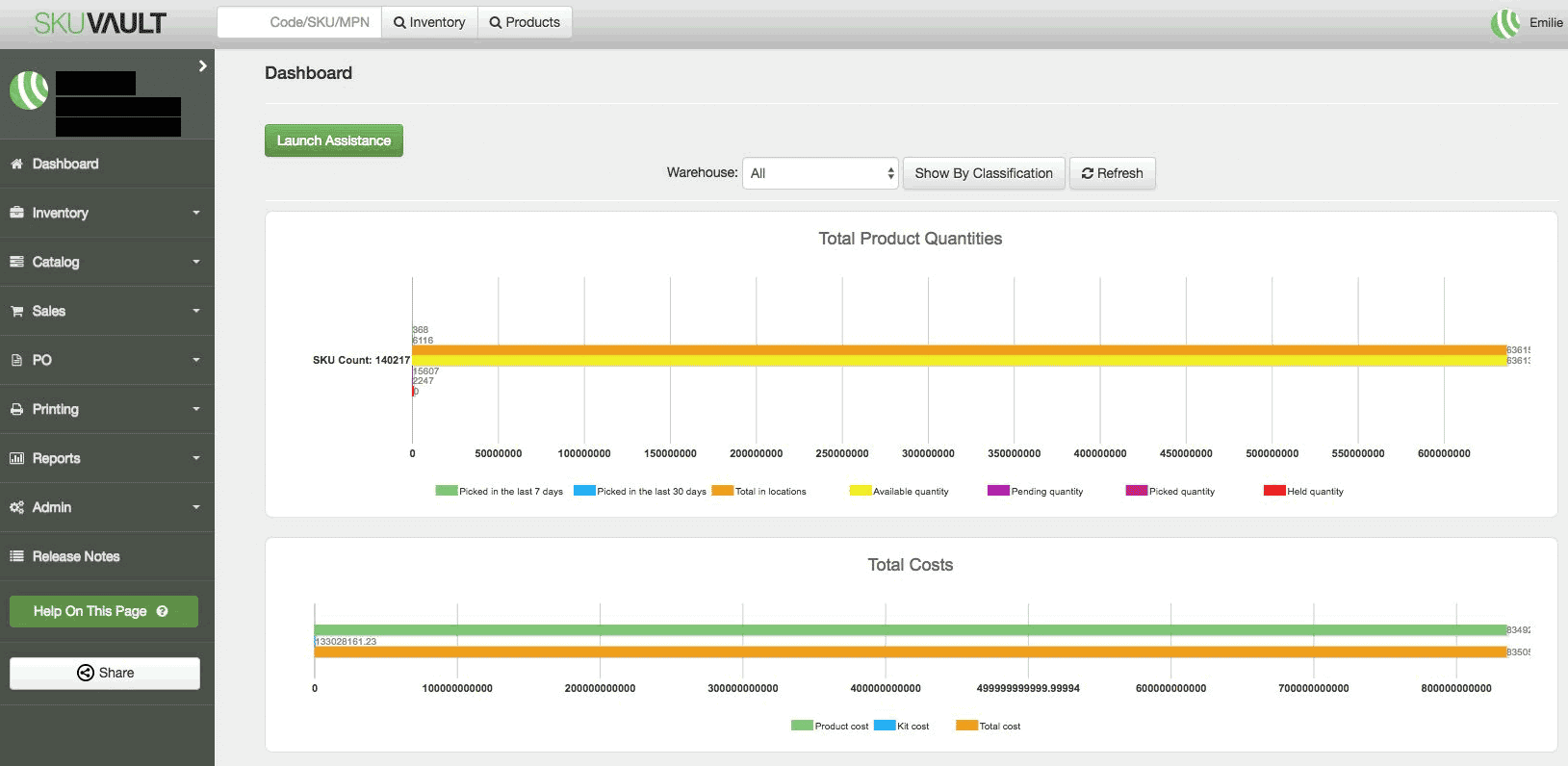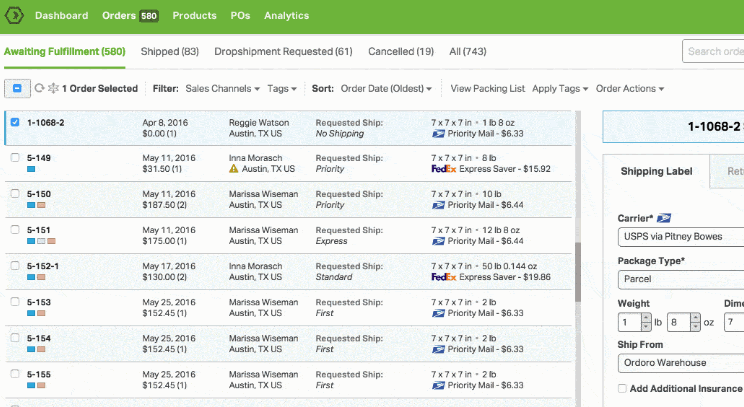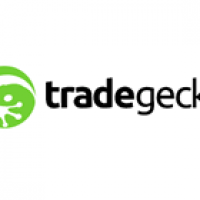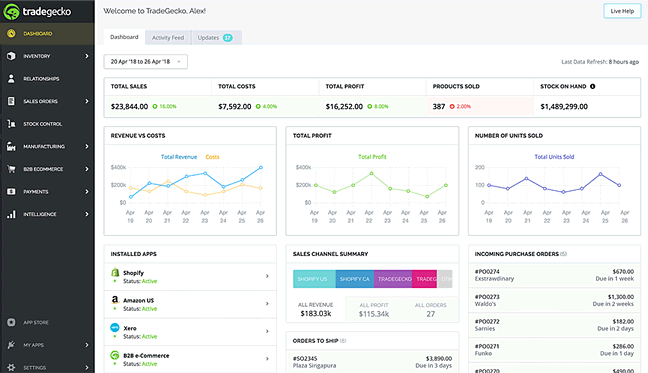When we talk about e-commerce, we are talking about the buying and selling of services or goods over the Internet, and the transaction that takes place online so that any transaction is done correctly. For this, a good warehouse management system can help your e-commerce avoid many problems by automating the process and creating documents that are easy to audit, which makes warehousing a critical part of the supply chain for every e-commerce merchant.
Table of Contents
This e-commerce warehouse management system is referred to as “physical product warehousing”, this system includes the ability to store products securely and with correct tracking, have knowledge of how and when the products arrived, how long they have been in stock, and the quantity available at any given time.
AmzDesignKit
Use code JORDI50 for a 50% during first month
That's why you need to know and understand your warehouse needs when choosing a suitable e-commerce warehouse management system for your business. The essential features you should look for in a WMS are:
- Integration with advanced barcode technologies
- Full back-office integration with order entry, stock control, and purchase orders
- Adaptability to your company's growth
- Real-time inventory updating
- Web store integration and EDI B2B support
- Fulfillment labeling
- Advanced reporting capabilities
- Automated inventory receiving and warehousing.
Depending on the level of your company, the e-commerce warehouse management system should be implemented as shown below. Here are the top 17 Best ecommerce warehouse management software we have tested out so far
Small / One person ecommerce
Small-scale businesses have a limited number of employees and a limited flow of finances and materials, so the integration of a warehouse management system that improves overall warehouse performance is necessary to give you more time to invest in growing your business. Some of the e-commerce warehouse management systems for small businesses are:
Shopify
If you are a DTC brand, a one person ecommerce, a self employed guy packing orders or a one product online store, Shopify can meet your demands on term of inventory management. It also allows you to scale ad infinitum. Sky is the limit when it comes to Shopify buut you can start real small.
Fishbowl Inventory Software
This hybrid manufacturing tool has key features that enable inventory control, material requirements, planning, work order management, purchase orders, and invoices. Its software features automated batch and repair jobs based on lot and serial tracking. It supports integration with e-commerce, shipping, commercial services, and CRM systems.
Odoo
Is a fully integrated and customizable WMS, its functions range from sales, CRM, project management, manufacturing, inventory, accounting, and others. It helps reduce manual processes by keeping all business functions in one place, allowing teams to collaborate with other departments from a single platform. It offers a variety of modules and applications.
Forecastly
One of the first Amazon warehouse / inventory management tools ever, adquired by Jungle Scout. Forecastly is one of the “small” softwares you can use if you are starting your business online. Pricing starts at 80$/month for 3.000 orders.
Review
- Pricing (5)
- Learning curve (4)
- Number of features (5)
- User friendly (5)
PROS
- Advanced inventory management
- Tailored to Amazon sellers
- 14-day free trial
- Cost-effective solution
CONS
- Starting price $80/month
- Limited to Amazon-focused use
- Risk of over/understocking
- No mention of non-Amazon integration
SkuVault
Is a cloud-based software. It features applications that enable inventory visibility of multiple warehouses, picking, packing, shipping process, and product preparation. It integrates with other e-commerce software solutions and is known for helping users ensure orders are fulfilled correctly and identify where an error has occurred during the process.
Wix
Has a simple interface and an affordable price. You don't need to know any coding language, just drag and drop components, creating beautiful online stores with its 510+ templates. The Wix help center has many articles and tutorials to help you create your online store. A FREE plan that never expires.
Squarespace
Is a SaaS e-commerce platform that has beautiful templates, layouts, and a large collection of themes, offers several options to edit fonts, colors, images, sidebars, and background images without any coding knowledge. The templates are rich in features covering a wide range of industries. And it possesses the ability to look quite good on mobile devices.
Geneva Business Management Systems
Is a cloud-based ERP application with the aspects of a desktop application. It offers local installation and hosted installation for full access via the Internet. It has modules for distribution and warehouse management, including 3PL, manufacturing and shop floor control, accounting, CRM, attendance, labor, e-commerce, reporting services, and QuickBooks.
Chondrion Warehouse Management
Designed with an automation approach that maintains distinct messages for an unlimited number of brands, it features integrated modules for inventory management, supply chain optimization, customer service, point of sale, order management, multi-channel commerce, label printing, and more. It integrates with popular online marketplaces, advertising venues, shopping carts, carriers, etc.
Mid-tier ecommerces
Medium-scale companies are those with a minimum of 250 employees. So for them, a good WMS includes the necessary tools to automate manual processes to save time, provide centralized control and visibility of all operations. Some of the best e-commerce warehouse management systems for medium-sized companies are:
3DCART
Includes everything needed to sell products online. It helps you create, design, market, and manage your store with its integrated features. It allows you to control online and offline payments, manage inventories, set delivery options, etc. It offers unlimited storage to its users, with SEO functionalities, which are continuously updated.
I'm really not a fan of this CMS, but they've been around since forever and where acquired by Shift4Shop so, I guess, it's not that bad
BigCommerce
If you have used Shopify, Bigcommerce won't sound like a stranger. It's basically a cloud solution for ecommerce sites on the mid-large range. It has a pretty solid inventory and warehouse management tool integrated.
Again, Shopify
As discussed before, Shopify is a CMS solution that can fit any stage of your company: small, mid or large.
Subscribe & get discounts for Amazon software
Enterprise-scale e-commerce:
The well-known Enterprise has little to do with no. of employees, no. of customers served, or net revenue. An enterprise-scale business has to do much more with the structure of its business. Here are some of the WMS used by enterprise-scale e-commerce:
Ordoro
Ordoro manages the shipping and dropshipping orders like a charm as well as Custom Workflows and Integrations, Vendor Portals or Supplier Management-. An all in one tool which is a must for warehouse management.
Vendio
Inventory, warehouse and order management in a multi-platform level. You can connect Amazon, eBay, Etsy, Facebook, Your own ecommerce and more.
BigCommerce and Shopify
Here again! Yup, they work also for enterprise-large ecommerce.
Merchant Spring
I particularly love this guys as they've put up the first tool to integrate EVERY analytics stuff you need coming from Shopify, Amazon, eBay, Walmart… so, if you're running a serious business in +1 country and +1 sales channel, this is the tool you are looking for.
Review
- Number of features (5)
- Pricing (5)
- Learning curve (5)
- User friendly (5)
PROS
- Multi-platform and multi-store management
- Real-time control panels and updates
- Extensive integrations including Amazon Vendor
- Specialized in European Marketplaces
CONS
- Complex due to many options
- Can be expensive for smaller sellers
- Requires time for setup and management
- Overwhelming for new users
Tradegecko
To me, this is the number 1 tool when it comes to warehouse and inventory management. Acquired by Intuit / Quickbooks, Tradegecko is a cloud-based inventory and order management platformsoftware.
Review
- Number of features (5)
- Pricing (5)
- Learning curve (5)
- User friendly (5)
PROS
- Automated inventory management
- Multi-channel and multi-currency support
- Intelligent insights and reports
- FBA integration for fulfillment
CONS
- Delayed technical support response
- Potential complexity for new users
- Limited customization in lower tiers
- Requires adaptation to software updates
Magento
Is an open-source e-commerce platform with many exciting features and themes stored in it, making the customization possibilities endless. Coding is an integral part, you can do endless things with the help of the platform, you can even hire a good Magento development company and create a store with endless features.
When it comes to warehouse management, Magento is pretty solid. You can create 3 levels of stores and their own warehouses, share inventory, grab reports in real-time…
Conclusion
Good inventory and warehouse management for an online store help save time and money while analyzing customer expectations and expanding the business. Therefore, it is vital to know how to choose and own an e-commerce warehouse management system according to the level of business you own.
